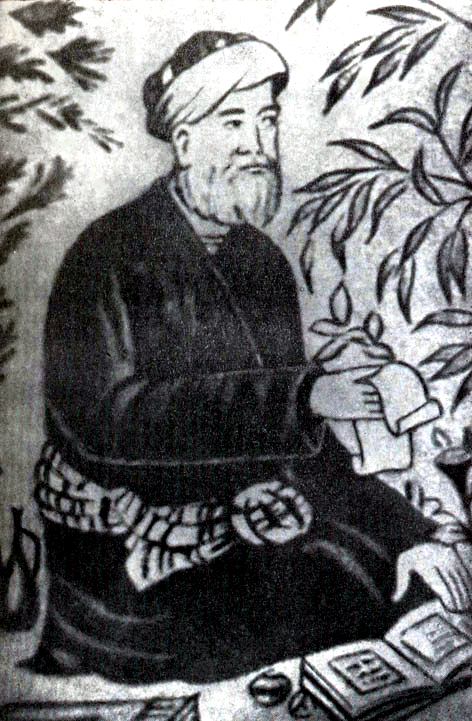“It is best to avoid low company, whether they come in peace or in war.”
An argosy of fables, p. 245
about himself, Extracted from Baharīstān-e- Jami
Nur ad-Dīn Abd ar-Rahmān Jāmī también conocido como Mawlanā Nūr al-Dīn 'Abd al-Rahmān o Abd-Al-Rahmān Nur-Al-Din Muhammad Dashti, o simplemente Jami o DJāmī y en Turquía Molla Cami , fue un poeta persa que alcanzó fama por sus logros como estudioso prolífico y escritor de literatura mística Sufi. Fue un poeta -teólogo prominente de la escuela de Ibn Arabi y un Khwājagānī Sũfī, reconocido por su elocuencia y por su análisis de la misericordia metafísica.[1][2] Sus obras poéticas más famosas son Haft Awrang, Tuhfat al-Ahrar, Layla wa -Majnun, Fatihat al-Shabab, Lawa'ih, Al-Durrah al-Fakhirah. Wikipedia

“It is best to avoid low company, whether they come in peace or in war.”
An argosy of fables, p. 245
about himself, Extracted from Baharīstān-e- Jami
“Good intentions are useless in the absence of common-sense.”
An argosy of fables, p. 240
about himself, Extracted from Baharīstān-e- Jami
“Happy is the man who knows the true from the false, and refuses to accept less.”
An argosy of fables, p. 243
about himself, Extracted from Baharīstān-e- Jami
An argosy of fables, p. 242
about himself, Extracted from Baharīstān-e- Jami
“The wise man refuses to be led beyond his own depth.”
An argosy of fables, p. 242
about himself, Extracted from Baharīstān-e- Jami
Lawāih, p. 20
Lawāih
“I was trapped in love
And this trap is enough for me.”
Haft Awrang, p. 101
Poetry, Poetry from Haft Awrang
“How a pleasant word of an old lover that said
When there is lovem there is no comfort.”
Joseph and Zuleika, p. 254
Poetry, Poetry from Joseph and Zuleika
Joseph and Zuleika, p. 113
Poetry, Poetry from Joseph and Zuleika
Joseph and Zuleika, p. 78
Poetry, Poetry from Joseph and Zuleika
Alluding to Rabia of Basra, Nafahat al-Uns, as quoted in A Literary History of Persia https://www.google.com/books/edition/A_Literary_History_of_Persia/q_n1DwAAQBAJ?hl=en&gbpv=1&pg=PA299 by E. G. Browne, p. 299.